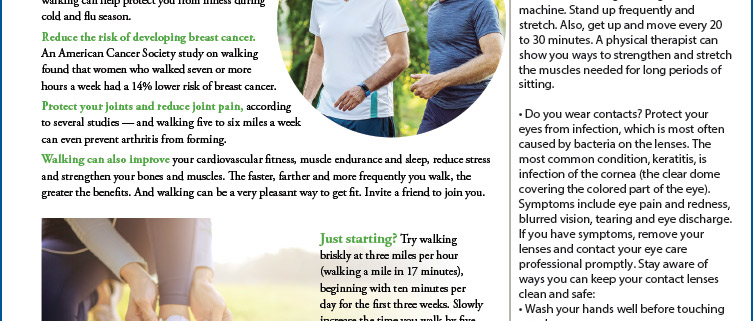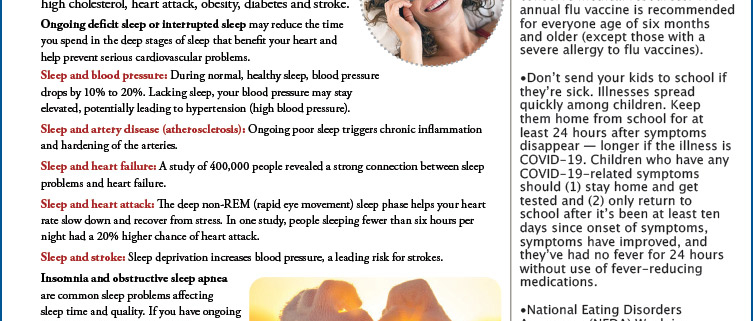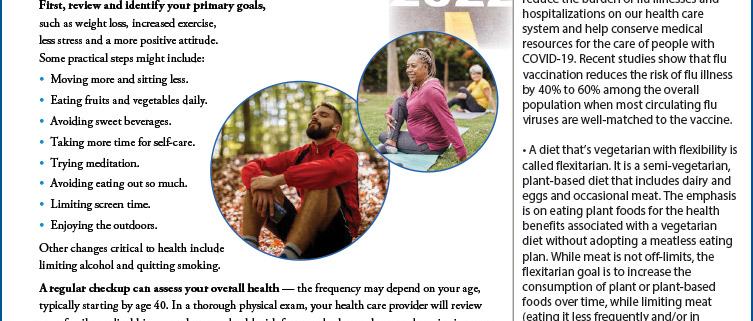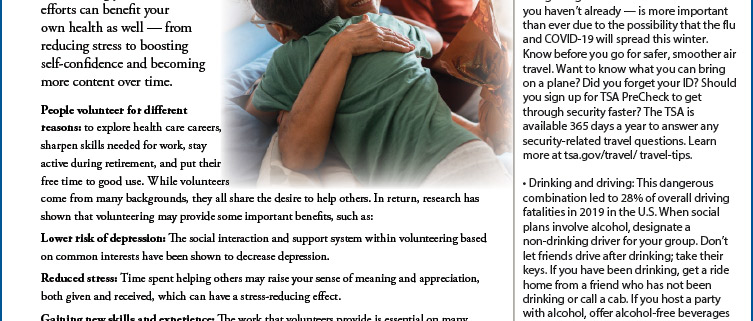News
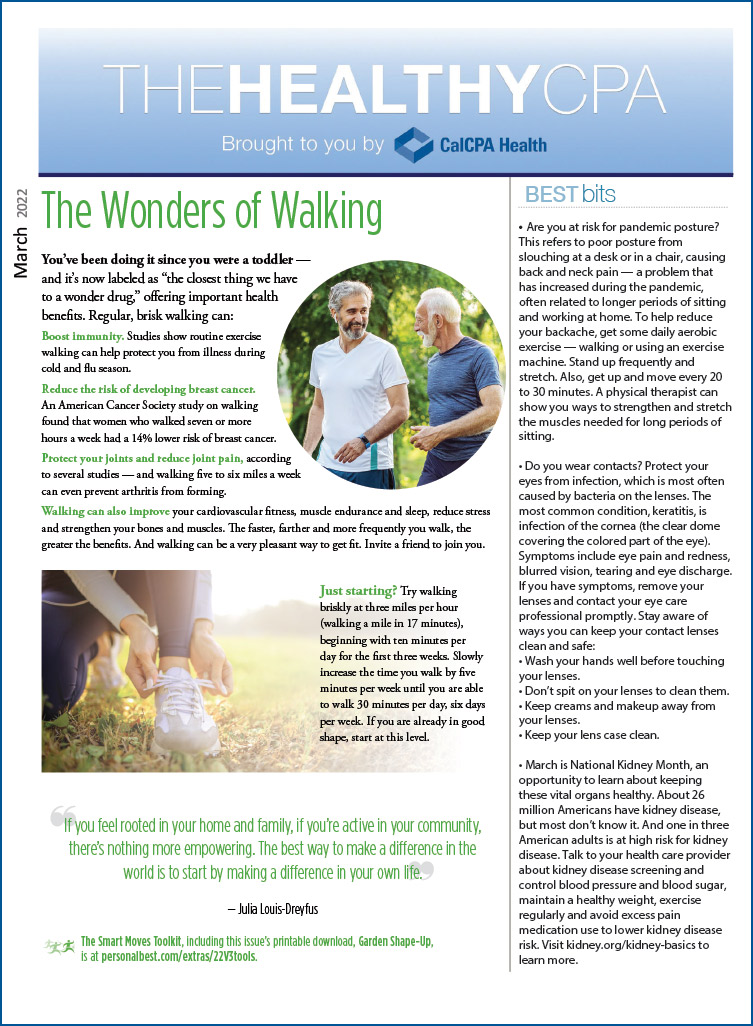 The eMagazine dedicated to improving members’ well-being
The eMagazine dedicated to improving members’ well-being
- The Wonders of Walking
- Coping with Post-COVID
- Sleep Studies
- Depression-Food Link
- Vitamins on Your Plate
- Q&A: What is cognitive behavioral therapy?
- Eye Health and Safety Myths
In each issue you will find information and inspiration to help you with your health and wellness goals.
The first step to understanding heart health is to familiarize yourself with the symptoms of a heart attack.
According to Heart.org, the main sign of a heart attack is having discomfort in your chest, usually in the center, that can longer than a few minutes or the pain could come and go. The discomfort could be described as pressure or squeezing and can be painful. Some may feel pain or discomfort in their legs, arms, jaw, neck, or stomach. You may feel lightheaded or experience shortness of breath, cold sweat, or nausea.
Educating yourself on the symptoms of a heart attack may one day help yourself or a loved one. Know the signs and be ready to CALL 911.
February is American Heart Month when it is our call to action to make sure we make sure we take control of our heart health. Over the course of the month, we will provide educational tips and short articles on how to recognize when something isn’t feeling right with your heart, understanding blood pressure, how to reduce the risk heart disease and stroke, and the promotion of healthy habits.
Make it a point to educate yourself on heart health this month so you can start to take care of YOU. Here’s a stat that may make you start thinking about how important it is to take the necessary steps to have a reset of your daily food intake and activities: According to the Centers for Disease Control (CDC), in the United States, someone has a heart attack every 40 seconds and about 805,000 people have a heart attack every year.
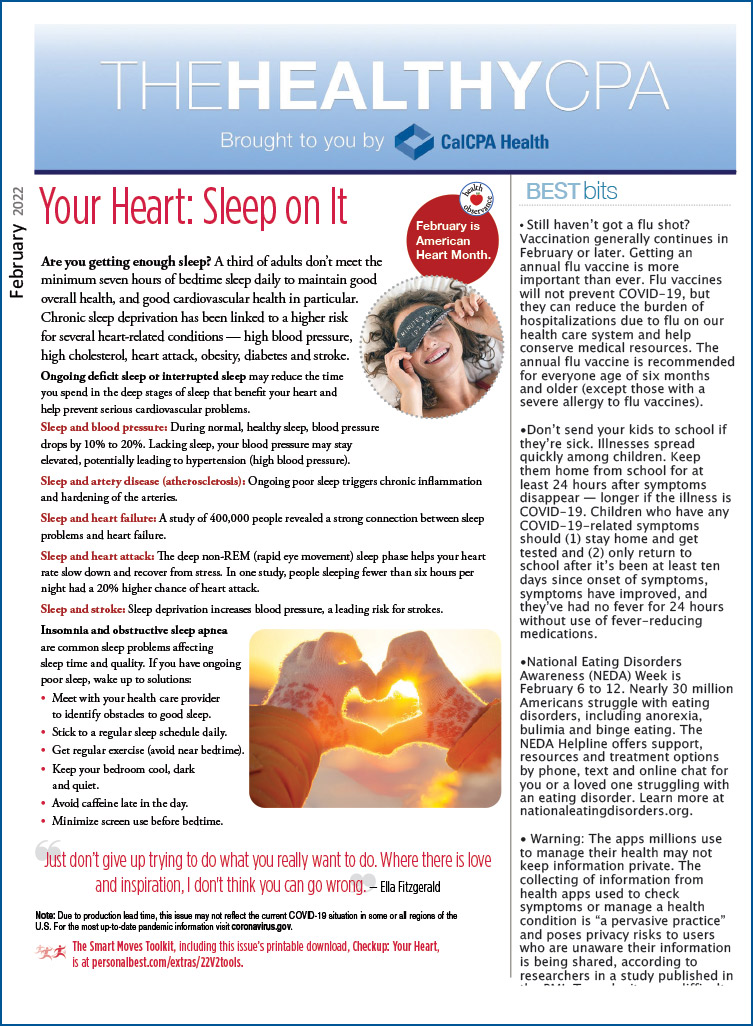 The eMagazine dedicated to improving members’ well-being
The eMagazine dedicated to improving members’ well-being
- Your Heart: Sleep on It
- Heart Attack Recovery
- Product Claims in the Food Aisles
- Winter Warm-Ups
- Making Sense of Scents
In each issue you will find information and inspiration to help you with your health and wellness goals.
GOOD NEWS: Anthem Blue Cross announced it has reached a new agreement with Dignity Health (Dignity) for all commercial products and networks including HMO, PPO and EPO. This agreement returns Dignity facilities to Anthem health plans, while protecting affordability for consumers. This agreement is retroactive to July 15, 2021, which means any care provided to CalCPA Health medical subscribers since that date, will be considered in-network.
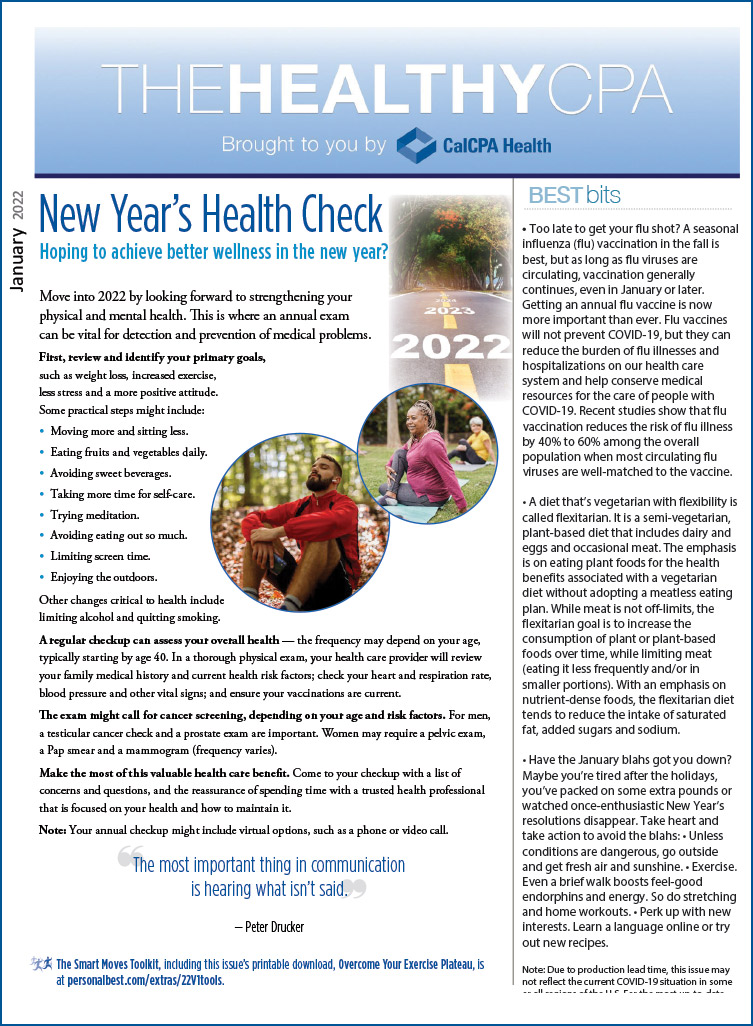 The eMagazine dedicated to improving members’ well-being
The eMagazine dedicated to improving members’ well-being
- New Year’s Health Check
- Losing Weight with Smart Devices
- Wheelchair Workouts
- How To Cope With Return-To-Work Anxiety?
- Q and A: Travel During COVID-19
In each issue you will find information and inspiration to help you with your health and wellness goals.
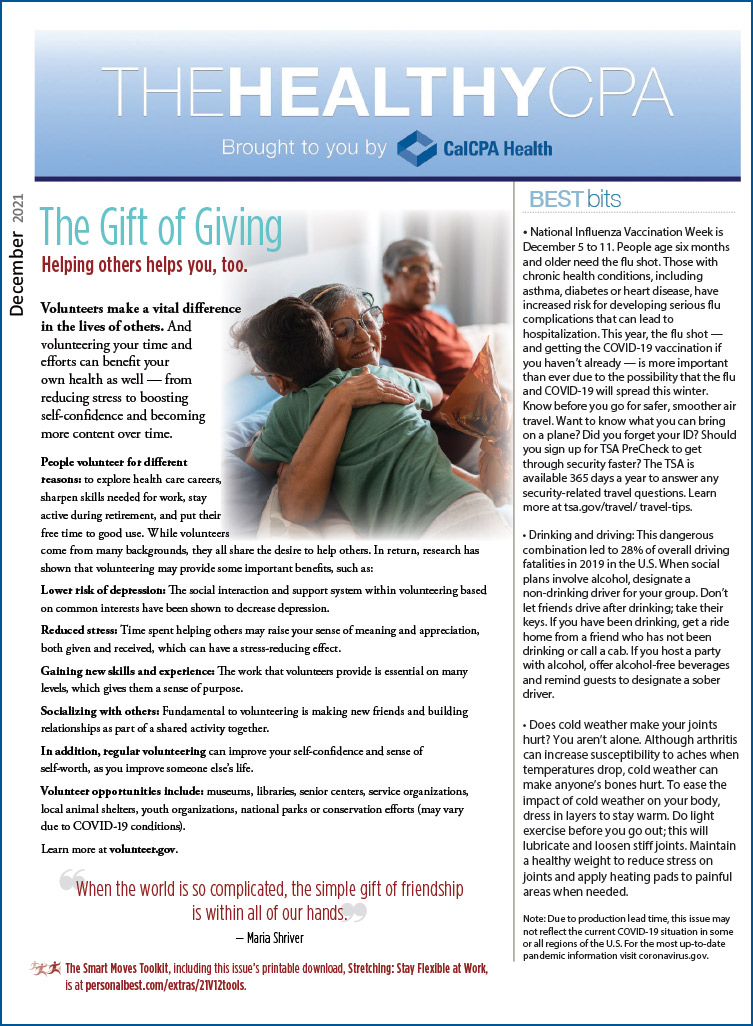 The eMagazine dedicated to improving members’ well-being
The eMagazine dedicated to improving members’ well-being
- The Gift of Giving
- Toning Up Made Easy
- Improve Your Relaxation Techniques
- Winter Family Fun
- Secrets of Sugars
In each issue you will find information and inspiration to help you with your health and wellness goals.
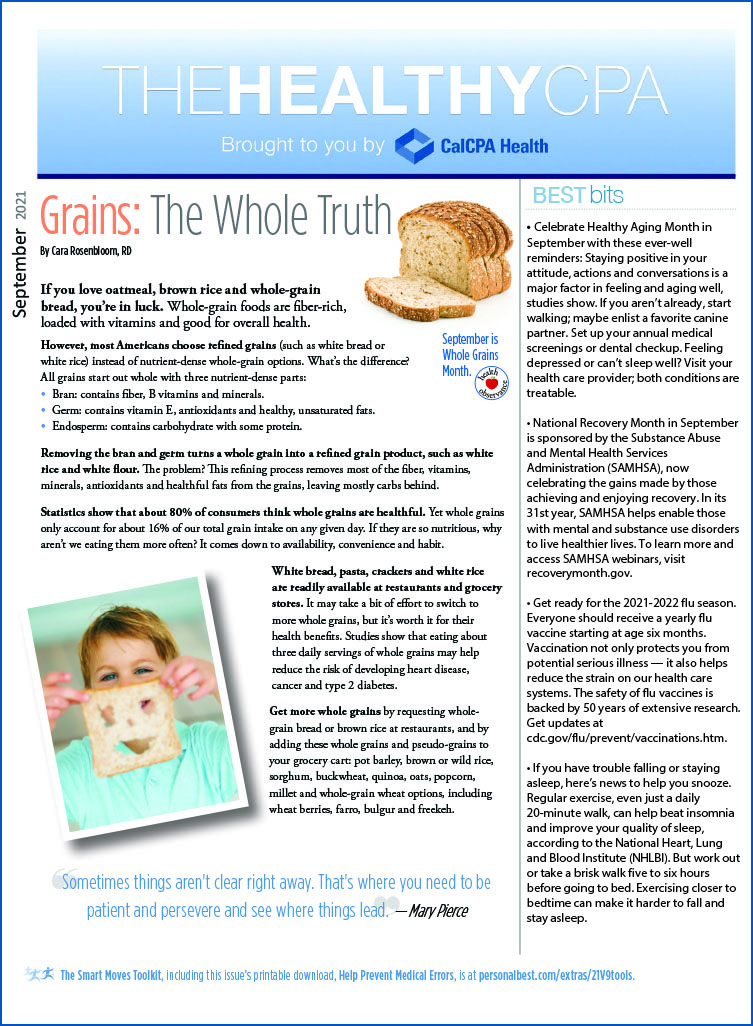 The eMagazine dedicated to improving members’ well-being
The eMagazine dedicated to improving members’ well-being
- Grains: The Whole Truth
- Exercise: Rx for Childhood Obesity
- Headache Relief
- Organic Food Safety
- Prostate Health Advice
In each issue you will find information and inspiration to help you with your health and wellness goals.
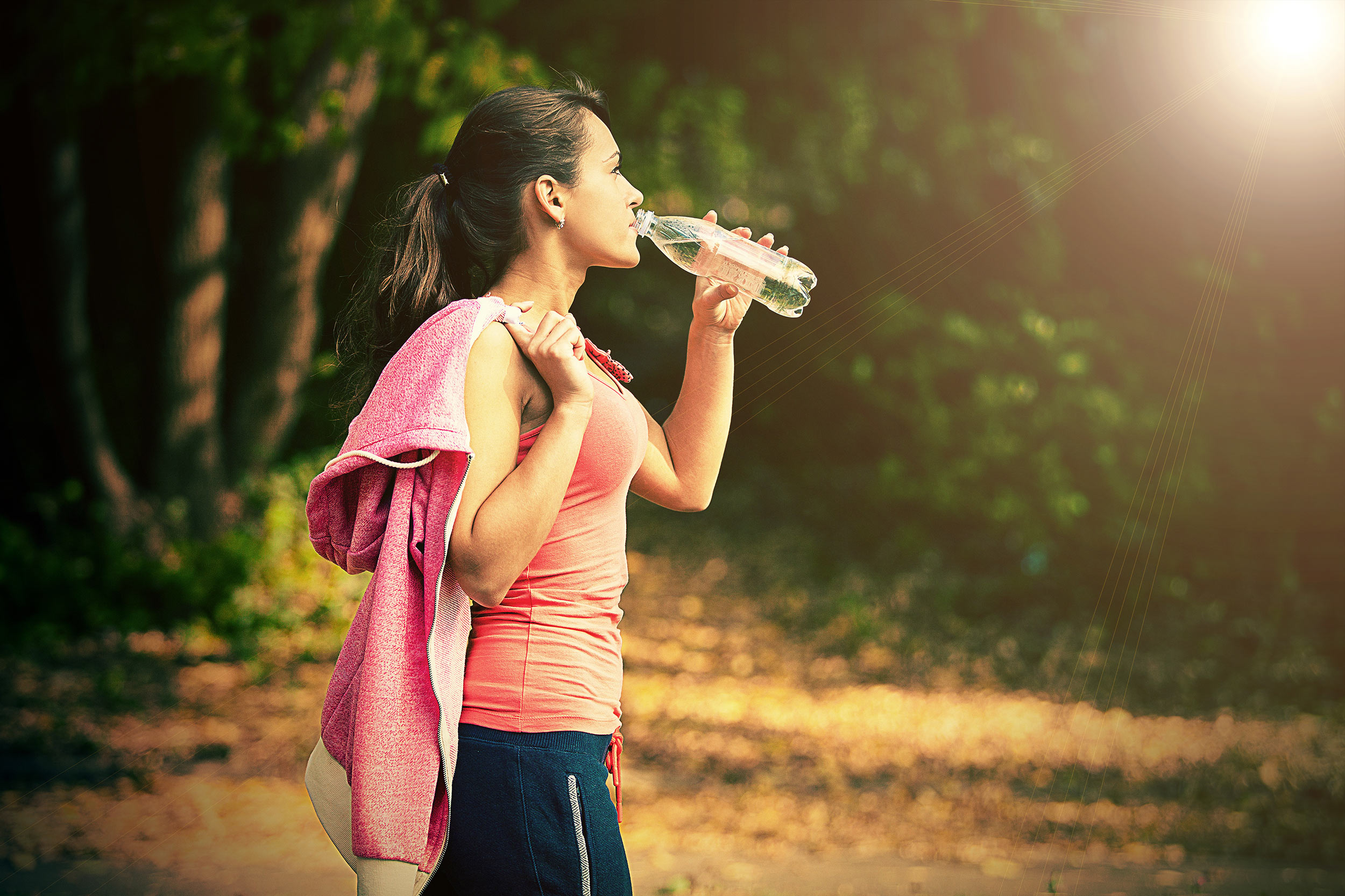
Sugar-sweetened beverages have become the single greatest source of calories and added sugars in the American diet. We consume lots of sugar-rich sodas, fruit drinks, iced tea and energy drinks, and that’s problematic because overconsumption is linked to an increased risk of heart disease and type 2 diabetes.
How much sugar is too much? The American Heart Association recommends no more than six teaspoons of added sugars daily for women, and nine teaspoons for men. A regular 12-ounce soft drink contains eight teaspoons of added sugar, so even one sweet drink per day is too much. Treat these beverages like candy and have one occasionally, but don’t make them your daily drink of choice.
Sip smarter: Choose water most often. If you crave flavor, jazz it up by adding a squeeze of citrus (e.g., lemon, lime, orange), mint leaves, sliced cucumber, berries, fresh ginger or a cinnamon stick. Enjoy the color and fragrance.
Since coffee and tea are each 99% water, they are also good choices — just be aware of how much sugar you add and how much caffeine you consume. Try not to exceed 400 mg caffeine per day. An eight-ounce cup of coffee has about 80 to 100 mg of caffeine, while a cup of green or black tea has 25 to 50 mg. Herbal tea and decaf coffee are caffeine-free choices. Read more

There are huge advantages to smart device technology, but it can also have a downside. Your smartphone and tablet give you flexibility about where and how you work, and help you manage your personal business, too.
But your posture and how you hold these devices can become a pain in the neck — and in other parts of your body, too. For example, holding your phone up to your ear for a long time can cause sore shoulders, elbows and neck.
Research into smart device ergonomics (the study of people in their working environment) shows you can help prevent physical stress from extended use of your tools with these strategies: Read more

